‘Trois Disques’ ('Three Disks')
A swaggering, monumental souvenir of the most extravagant party Montreal’s ever thrown.
Montreal’s Expo 67 was an architectural banquet of glitzy pop-optimism. Its whimsical fairgrounds served up the future in endless flavors, including a monorail, a geodesic dome, the world’s first interactive movie, and even an Asbestos Plaza. Attracting over 50 million visitors at a time when Canada’s population was only 20 million, it’s widely considered the most successful World’s Fair. Celebrity attendees included Jackie Kennedy, Bing Crosby, Thelonious Monk, and Jefferson Airplane.
For Alexander Calder’s “Trois Disques” (“Three Disks”), the party never ended. The monumental steel sculpture still sashays across the skyline of Île Sainte-Hélène, one of two islands used as the site of Expo. At 72 feet (22 meters) tall, it can easily be spotted from Montreal’s Old Port, where it might be mistaken for a colossal six-legged critter scuttling out of the Saint Lawrence River.
Up close, the sculpture has an elegant, welcoming presence. Sunlight gleams off its steel plates and rivets, and its wide arches invite visitors to walk under and around. In the summer, it towers over roller skaters and Piknic Électronik dancers. In autumn, it beckons park visitors to the waterfront and walking trails. It knows the area well, having been moved about 980 feet (300 meters) across the island to its present site in 1991.
Calder is best known for his colorful mobiles, and much of his sculptural work explores movement and the interplay of abstract shapes. He referred to his stationary pieces as “stabiles,” and made his largest stainless steel works as public commissions. “Trois Disques” is Calder’s second-largest stabile, and his only monumental work to remain unpainted. It was commissioned by the International Nickel Company of Canada for Expo, and is sometimes titled “L’Homme” (Man), after Expo’s theme of “Man and His World.”
With its sweeping, jubilant archways, “Trois Disques” is often described as representing human genius, communal harmony, and other lofty notions. Flaring with the energy of fireworks or dancers, it’s a lasting reminder of Montreal’s glorious moment in the spotlight, when the city invited the world to kick up its heels.
Know Before You Go
The sculpture is located in Parc Jean-Drapeau, not far from the metro station. It’s accessible at any time. For another perspective, a 1:6 scale model of “Trois Disques” can be found outside the Montreal Museum of Fine Arts’s Hornstein Pavilion, at the corner of Sherbrooke St. and du Musée Ave.



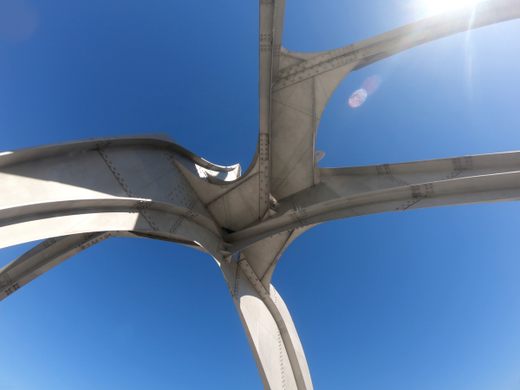
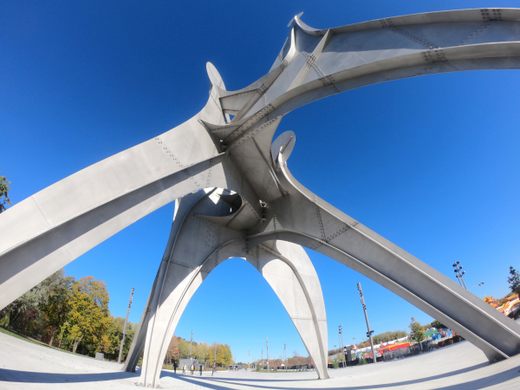
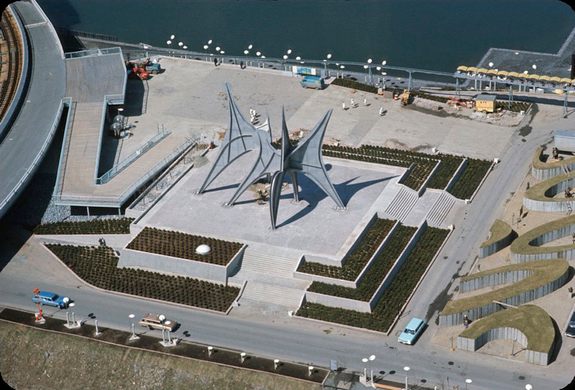



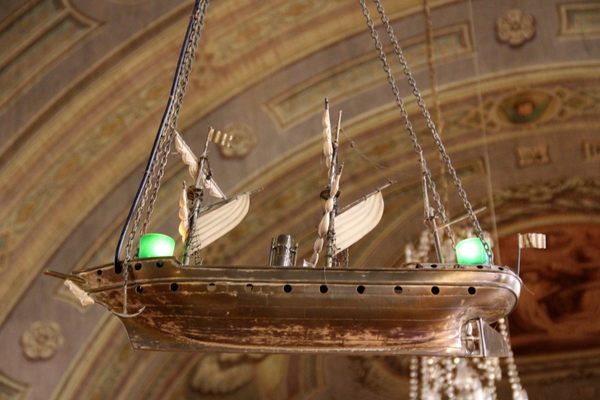





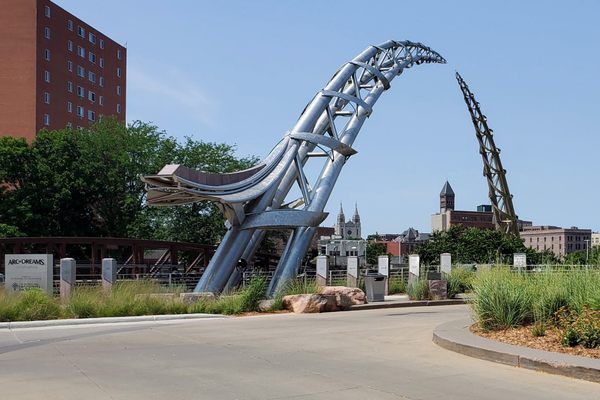

Follow us on Twitter to get the latest on the world's hidden wonders.
Like us on Facebook to get the latest on the world's hidden wonders.
Follow us on Twitter Like us on Facebook